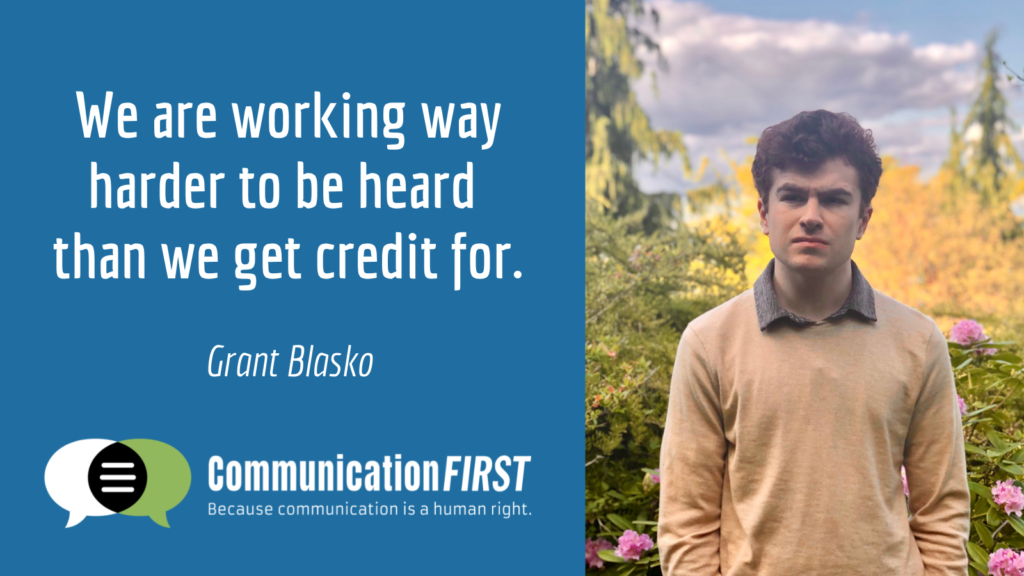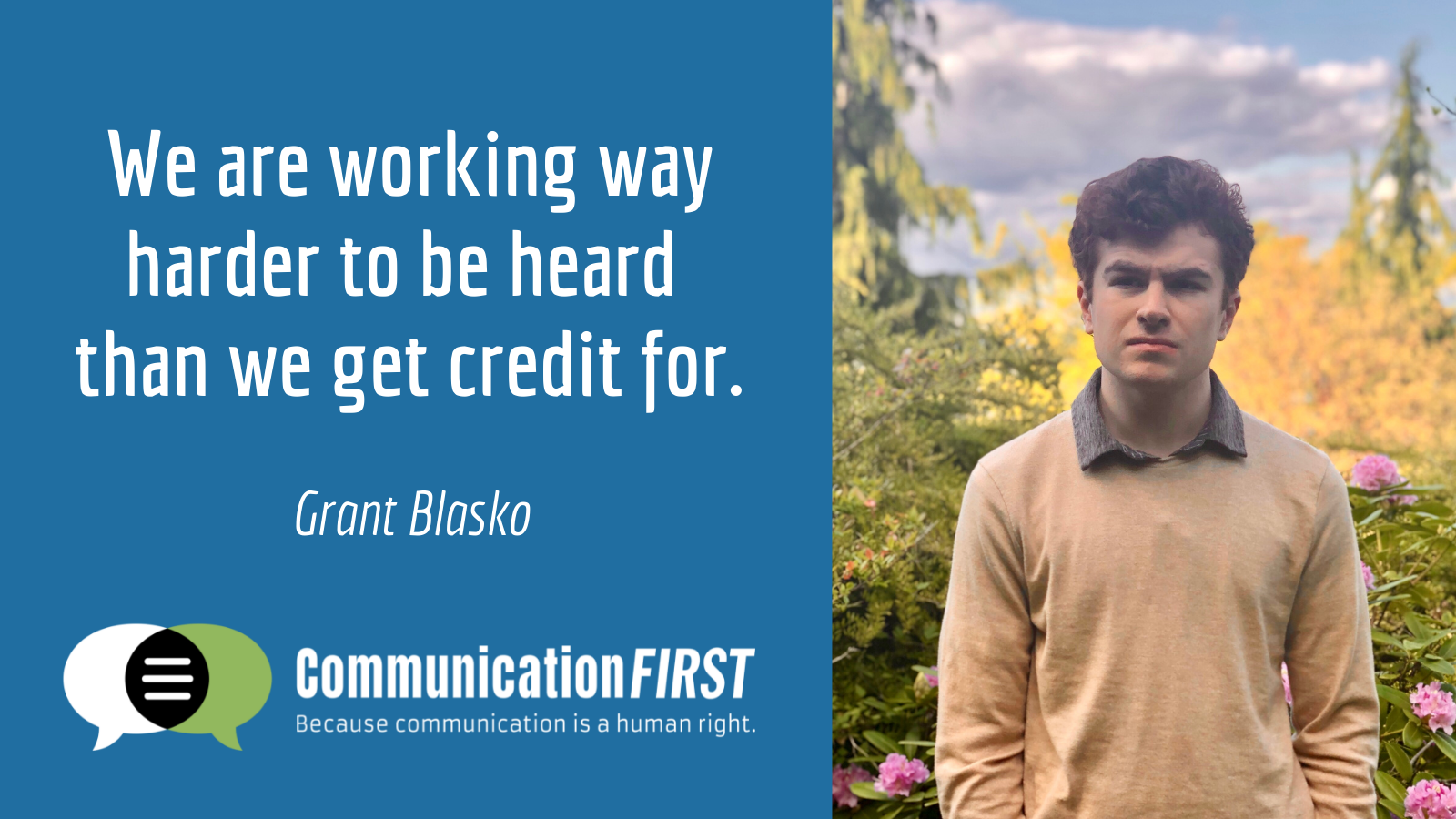
Grant Blasko is a member of CommunicationFIRST’s Advisory Council. He is 19 years old, autistic, a full-time user of augmentative and alternative communication (AAC), and is a student in the state of Washington. Grant has collaborated with numerous institutions on issues relating to both autism and meaningful communication and educational access, including most recently, the CAST Universal Design for Learning team, New York University, and the University of Washington. Grant’s website is https://grantblasko.com/.
Grant wrote this short piece for Autism Acceptance Month to help spark a bigger conversation about the need to rethink communication support. As he explained to us, “I think it is important for young AAC users to understand the strategies we hone for ourselves over time. I learn so much more from my mentors.” Speaking off-the-cuff without preparation is difficult for most people, and AAC users are no exception. Grant has explained that he uses a lot of mental processing to plan his writing, but he wrote this piece in one sitting, as you can see from the captioned, but otherwise unedited video linked here and embedded below. Grant’s essay, which is also a complete transcript of the video, follows.
by Grant Blasko
I want to talk to the fellow AAC users out there about Autism Acceptance Month, and really get to the heart of the issue for me quickly.
In saying acceptance, it implies that we should be granted [the] insider track to be included in all aspects of life. But I think we can agree that this does not happen in most environments without a considerable lift on our parts, because people who are not comfortable with AAC users do not naturally include them in conversation.
Think about that for a second.
The onus is on us to take on a device nobody else is using in the environment, and use it well enough to overcome the dominant culture of speech, all while navigating a disability prone to sensory and motor differences.
So let's think about that some more.
This is, frankly, ridiculous.
Disability advocates need to claim this narrative and rewrite what support looks like for beginning AAC users.
The truth is we are working way harder to be heard than we get credit for, and that needs to change.
So please rethink what acceptance can mean in terms of the actions you will do differently to ease the stress of someone you know with a communication disability.
Thanks so much for your time tonight. I really appreciate it a lot!

